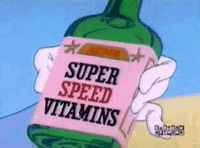Make Your Point > Archived Issues > ACME
Send Make Your Point issues straight to your inbox.
(Source)
(Source)
(Source)
"Acme" has been around in English since the 1500s. It comes from the Greek word akmē, which means "the peak, the high point, the best point, the prime of life."
Part of speech:
When you want to give your comment a stylish Greek flavor, use the formal, semi-common word "acme." It's got a very positive tone.
"For several generations of musicians and music lovers, Steinway has come to represent the acme of piano sound."
Explain the meaning of "acme" without saying "peak" or "zenith."
Fill in the blanks: "(Some food, drink, toy, product, activity, or other thing) is the acme of (some feeling or quality, like peace, relaxation, satisfaction, frivolity, indulgence, laziness, geekiness, hipsterness, holiday cheer, or childhood joy)."
Try to spend 20 seconds or more on the game below. Don’t skip straight to the review—first, let your working memory empty out.
1.
Opposites of ACMATIC include
|




